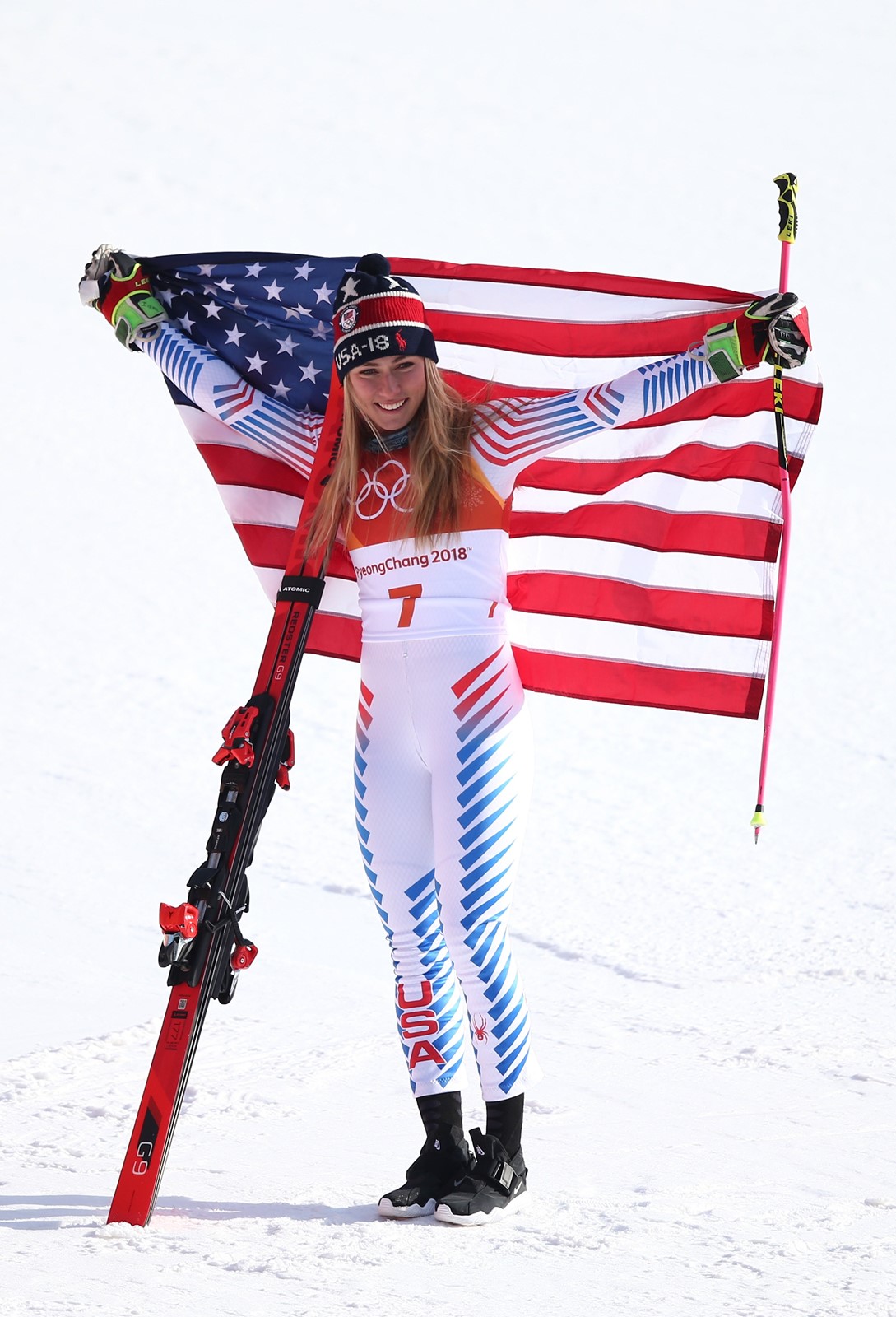Shiffrin tears it up in taking giant slalom, then returns
to mountain for slalom

Shiffrin doesn’t do everything fast. It just seems that way.
The amazing American who could one day set records that will never be broken dazzled on the slopes once again Thursday, steaming down the mountain in the second run of the giant slalom to blow away the field and capture her second gold medal in as many Olympics.
She had only a few hours off before returning to the slopes Friday to try to become the first skier ever to defend an Olympic gold in the slalom.
Shiffrin could have played it safe in the giant slalom and still gotten a medal, maybe even a gold.
But that’s not her style. Not when she’s on the biggest stage of them all.
“The Olympics is not about protecting the lead,” Shiffrin said. “It’s about putting your best on the line. You see what happens. It was incredible to take so much risk in that second run.”
With the parents who raised her just for this moment watching, Shiffrin put on the kind of run that only the greats can manage to pull off.
The best news is, there is more to come. Perhaps a lot more.
Shiffrin said in Sochi she wanted five gold medals in these Games, a seemingly impossible task. The way she is skiing, she might have gotten them, too, had Mother Nature not tossed her an unfortunate curveball.
She now plans to skip the super-G on Saturday because weather delays have stacked up three races on consecutive days. That’s too much even for Shiffrin, but the combined and the downhill await next week.
“She will have raced and trained — or tried to race — for six days in a row,” said her mother and coach, Eileen Shiffrin. “She has to have a day off.”
Still, four golds are not out of reach. And that would make her not only the most decorated Alpine star in any Olympics but a breakout star who could transcend the somewhat insular world of competitive skiing.
“You go for gold, and I really went for it,” Shiffrin said. “It’s an incredible feeling to know my best effort is good enough.”
After days of waiting because of weather delays, Shiffrin made her debut with a strong first run in the giant slalom that placed her second behind Italy’s Manuela Moelgg.
Then she went and did what any 22-year-old would do to calm the nerves between races.
She took a nap.
“It’s nice,” Shiffrin said. “For me, that’s one of my favorite times during a race day is when I can lie down and take a deep breath and then get ready for the next run.”
And ready she was. Shiffrin attacked the course right out of the gate, and by the time she crossed the finish line it was all but over. Moelgg was to follow, but it was quickly clear she didn’t have the speed to keep the lead, and she fell to eighth place.
Behind the finish line, Shiffrin’s father was cheering her on.
“It was marvelous,” Jeff Shiffrin said. “Particularly for the 30 seconds after she finished. That felt really marvelous. I don’t think it gets any easier, but I think she can take a deep breath and say, ‘The pressure’s off a little bit.’ Maybe.”
Maybe. And just maybe Shiffrin can make the schedule work for her now, after wind delays forced the postponement of both the giant slalom and the slalom. Without the Super G to focus on, she’ll soon be able to look forward to the combined and the downhill.
Shiffrin is a rare skier who can be competitive in both the tactical and speed races, though the task ahead of her is huge.
But with two wins in three Olympic races over two Olympics, who is going to doubt her?
“I think she’s the best mentally and she’s the one who does what she does in training on the course,” said Italy’s Federica Brignone, who won the bronze in the giant slalom. “She’s so in there, and she can do it better than us. I think we’re more emotional than her.”
That showed afterward, when Brignone and silver medalist Ragnhild Mowinckel of Norway got on the platform and jumped up and down excitedly.
When it was Shiffrin’s turn, she acted like she had been there before — which she had. She stood in the middle and smiled, putting her arms around her two fellow medal winners.
No reason to expend any extra energy.
There was more work to come, and more medals to be had.


 PREVIOUS ARTICLE
PREVIOUS ARTICLE
